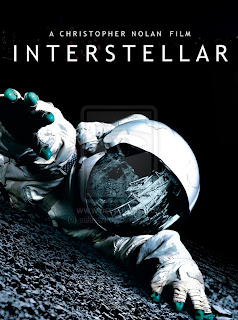When I intend to watch a movie, I avoid reading reviews, as they tend to give away the entire story sans climax. When Interstellar was released, I was told to read a few reviews as the director is known for handling multiple complex concepts in his movies, and understanding them completely, without the initial preparation would be tough. So, I did. Interestingly, none of the reviews dealt with the story in-depth but dwelt more on the director's personality, his style of narration and the emotional part of the film. After watching the movie yesterday, I realized that it was not the discretion of the review writers to hold back the complete story but just that it simply CANNOT BE RETOLD THE NOLAN WAY. Except for the elaborate detailing of the pilot's sojourn to the space (much of it was seen in the movie Gravity three dimensionally), Interstellar is worth the watch.So what am I going to write about? Only my takeaways from the movie.
Picture Courtesy: sciencefiction.com
It is a way to live that he imbibed early in his life from his organist mother. His father was a mathematician. He recalls living with two different streams under one roof. “Science and religion always coexisted at home. It was like having two cars in my garage — one of the church with all the attendant beliefs; the other of logic, reason and maths. I had to balance the two. Initially, I was very close to my mother but, as I grew up, I started to question Noah’s Ark, the Adam and Eve story. I kind of started understanding my father more. However, the more questions I asked of science, the more religious it seemed to become. As a result, I ended up where I started!”
This describes exactly how I felt after watching the movie. Theoretical physics seems only like ratification of religious beliefs through mathematical models. For instance, the protagonist Cooper, in the movie names his daughter Murph, after the Murphy's law which states that 'Anything that can go wrong will go wrong'. Isn't that what we call FATE precisely?
When the movie suggests of the possibility of aliens initially but later brings it down to future beings of our own species who exist defying gravity if not time, I cannot control but think of REBIRTH AND THE SURVIVAL OF SOUL AFTER DEATH. If it will be possible for explorers to hibernate for decades without food and water, then it must have been possible for sages and saints to meditate for years.
Picture Courtesy:quotesvalley.com
Cooper desperately tries through a black hole,to push his daughter to stop him from letting her father, himself, go on his mission to the space.TARS, the robot reminds him that they were not there to alter the past. And that is KARMA, past actions of an individual influencing his/her future. Also, when he firmly believes in the reciprocation of his daughter's love to decode his communications and his daughter trusting his father to keep up his promise of returning, it melts down to the Biblical saying 'FAITH MOVES MOUNTAINS'.
I am not a very religious person but of late I have come to believe that our customs and practices did have a meaning in them. Sadly, that meaning was not passed over resulting in the questioning of its relevance in the modern contexts.
As for the true message of the movie, there was only one man who understood and even demonstrated it, to the audience in the movie theatre, and that was MY MAN! The movie lacked dance numbers, romantic music, overreacting expressive actors, all those elements that could have interested my four-and-a-half year-old daughter. So she had to pee to escape the boredom, not once or twice but four times during the two-and-a-half hour show. The father, an ardent lover of astrophysics, accompanied her. Message from the movie? The prime responsibility of a parent is to provide a secure environment for the child without fears of the future.

